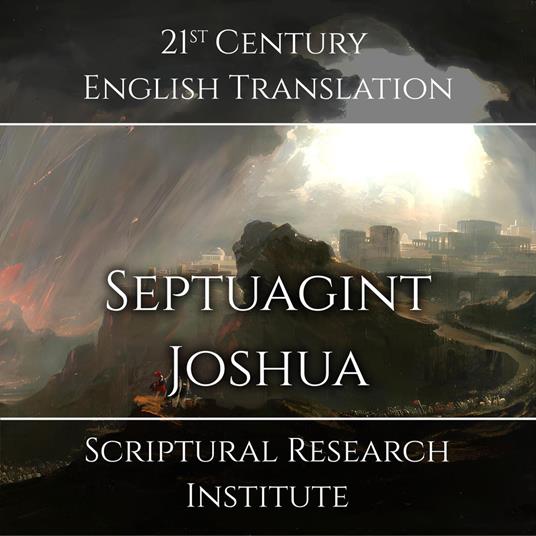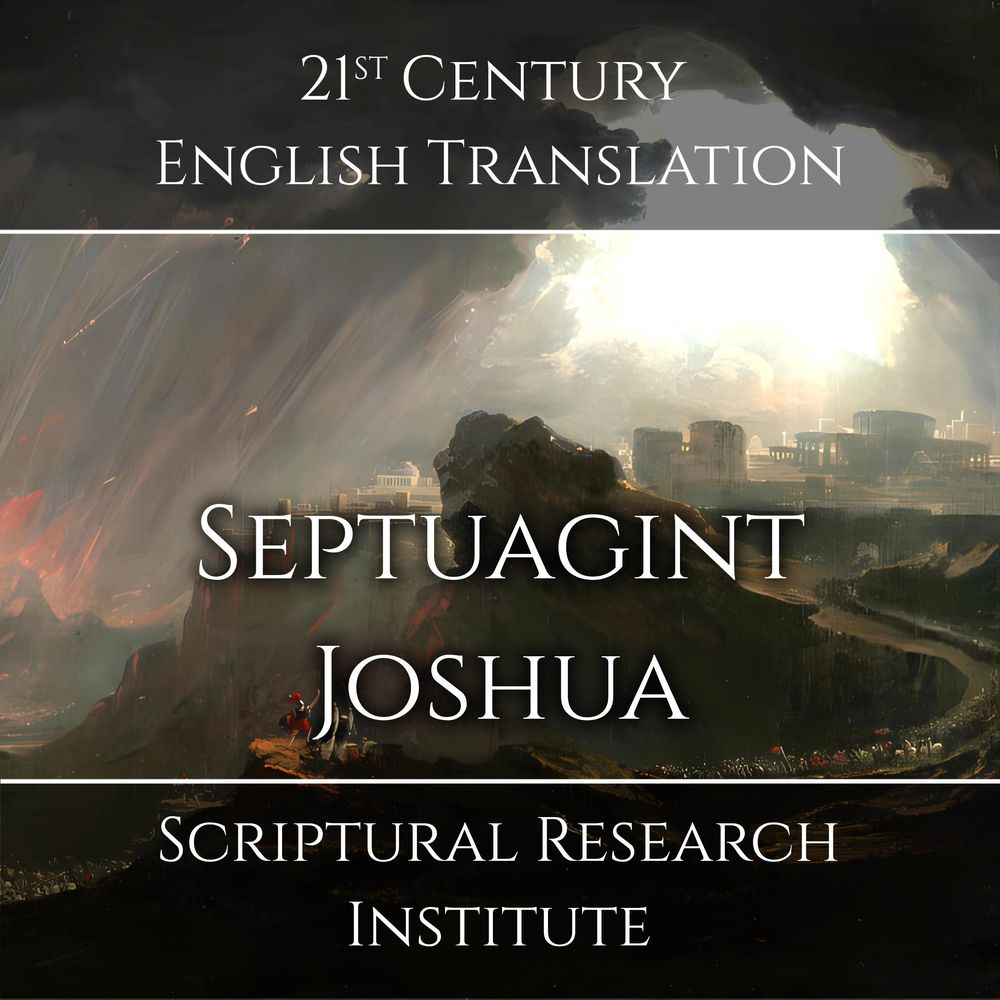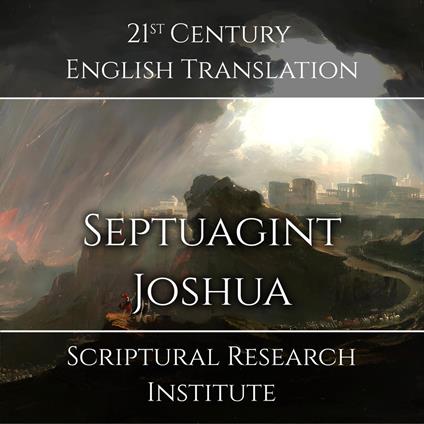Septuagint - Joshua
The general view of both historians and biblical scholars is that the Book of Joshua holds no historical value and is simply a book written during the life of Josiah, or during the Babylonian captivity, or even later by Ezra during the Second Temple Era, however, this is based on analysis of the Masoretic version of the book, which is quite different from the Septuagint's version. In Rabbinical history, as a century and a half have been redacted, Joshua's life is dated to the early 1300s BC, instead of the late 1500s BC. This era does not align with anything found in the archaeological record, and therefore the book reads like fiction. Likewise, the Masoretic version is about a god named Yahweh, a name not known to archaeology until around 800 BC, meaning that the Book of Joshua, if the Masoretic version were the original, would have to have been written after that time. The Septuagint's version is quite different in the details, as the god of the book is Lord God (Adon Elim), the God (El) of the ancient Canaanite religion, who was worshiped in the 2n? millennium BC. Joshua's invasion of Canaan circa 1508 BC, 42 years after the Minoan Eruption, would also place the Israelites at Jericho at around the time the walls were torn down. The ruins of Jericho were identified as the mound at Tell es-Sultan in 1869, and this is still generally accepted as ancient Jericho. The city was a major trading center, and heavily fortified city for thousands of years, until circa 1500 BC when the walls were torn down. The exact date when the walls were torn down is unclear, with estimates ranging from 1700 to 1400 BC, however, 1500 BC is the most widely quoted date. In approximately 1504 BC the Egyptian King Thutmose I led an expedition through Canaan and Syria to the Euphrates River, and it is assumed by many historians that he ripped down the walls of Jericho, however, that is not possible. Thutmose recorded that he found no one to fight him in Canaan, and the local peoples submitted to Egyptian power without conflict. Moreover, later the same year he launched his invasion of Nubia, to the south of Egypt, meaning he simply did not have time to secretly lay siege to Jericho. This pacified Canaan ruled by people who were afraid of the Egyptians is consistent with the account in Joshua, however, the Egyptian 'invasion' is not mentioned in Joshua. Given the history between the Israelites and Egyptians, it is not unlikely it would have been omitted, especially if there was no war, and the Israelites surrendered to the Egyptians without a fight. After 1500 BC the people in Canaan, whoever they were, began fortifying their cities. His heir, Thutmose II, also sent an expedition into Canaan and Syria, and crossed the Euphrates, however, only reported fighting nomads in the Sinai. There are no records of his successor, Queen Hatshepsut invading Canaan. Her heir Thutmose III did send multiple armies through Canaan demanding tribute, however, these campaigns appear to have been mostly peaceful until around 1450 BC, when he marched his army into northern Canaan to invade Syria and occupied all of Canaan in the process. The cities of Kadesh on the Orontes (in modern Syria), and Byblos in modern Lebanon, are mentioned as being major conquests of his campaigns, which laid the foundation for his later attack on the Mitanni Empire in Syria. After Tuthmose's campaign, the region was formally part of the Egyptian Empire for centuries, however, Egyptian records show they generally left the people alone and did not exert much control over the region beyond demanding regular tribute. The Egyptian records show there were many local chieftains during this era, sometimes fighting each other, or a people called the Habiru, which some believe to be an ancient reference to the Hebrews.
-
Autore:
-
Durata in (hh:mm:ss):02:16:15
-
Anno edizione:2023
-
Editore:
Formato:
Gli Audiolibri venduti dal nostro sito sono in formato MP3 e protetti da un DRM proprietario Kobo.
Compatibilità:
Gli Audiolibri venduti dal nostro sito possono essere ascoltati sul tuo smartphone o tablet tramite la APP gratuita Kobo Books scaricabile da iOS o Android. Gli Audiolibri non possono essere scaricati in locale o trasferiti su un client di ascolto diverso da quello fornito tramite Kobo. Non è possibile ascoltare gli audiolibri con la Kobo APP Desktop. Puoi ascoltare gli Audiolibri tramite determinati eReader Kobo, utilizzando cuffie o casse con Bluetooth. Visita la pagina degli eReader per avere maggiori dettagli.
Cloud:
Gli Audiolibri venduti singolarmente dal nostro sito sono immediatamente sincronizzati sul tuo account personale in automatico. Successivamente all'acquisto, sono subito disponibili all'ascolto tramite i client di lettura Kobo compatibili.
Clicca qui servissero ulteriori informazioni



